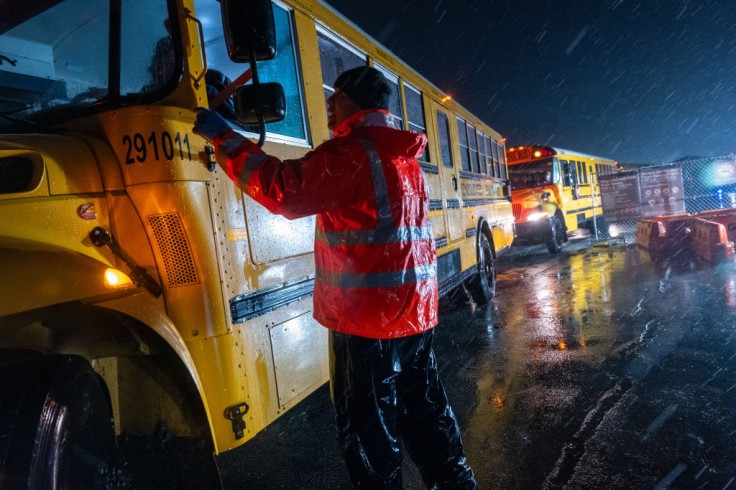
The NYC school closure of James Madison High School sparked outrage from parents, students, community residents, and even Elon Musk, the CEO of X.
New York City decided to turn James Madison High School into a temporary shelter for nearly 2,000 migrants due to the reported storm, which prompted the students to revert back to online learning. This decision has met with criticism online and in the community, as the migrants also continue to use their tent shelter in Brooklyn on an abandoned airfield that is in danger of coastal flooding from storms.
Elon Musk's Stance on Unexpected Transformation of James Madison High School
Students of James Madison High School found themselves adjusting to online learning again as their local government quickly decided to close the doors for them and make it a temporary migrant shelter.
The cause of this decision even has a deeper root, and that is the lack and immense shortage of housing for migrants.
New York City Mayor Eric Adams stated that they are relocating migrant families from Floyd Bennett Field in Brooklyn as a precaution to make sure everybody in their care is safe.
Furthermore, the X CEO, Elon Musk, took to his platform to voice his views on the political matter, saying, "They've run out of hotel rooms, are kicking kids out of school for illegal housing, and now they want your homes too."
Musk's comments shed light on concerns surrounding the allocation of resources within urban environments, particularly when it affects educational institutions. His involvement in this debate has amplified the discourse, emphasizing the broader consequences of utilizing educational facilities as emergency shelters.
Musk's remarks echo a growing apprehension about the sustainability and ethical aspects of such decisions in the realm of urban crisis management.
Revisiting Remote Learning Amidst Controversy
The shift to remote learning at James Madison High School, necessitated by its role as a migrant shelter, has reignited conversations about the effectiveness and challenges of online education. This transition, reminiscent of the pandemic-induced era of remote learning, raises inquiries about the readiness of schools and families to adapt to abrupt changes in the learning environment.
Parents and educators alike harbor concerns about the impact on students' academic progress and overall well-being, especially in light of recent disruptions brought about by the COVID-19 pandemic.
The choice to repurpose James Madison High School as a temporary migrant shelter underscores the mounting pressures on urban infrastructure to address humanitarian needs.
NYC's decision to close the school, while aimed at addressing an immediate crisis, has sparked an extensive discourse regarding long-term strategies for managing such emergencies.
The participation of public figures like Elon Musk in this conversation shines a spotlight on the national and global interest in how cities, exemplified by New York, navigate the delicate equilibrium between humanitarian aid and the provision of essential public services.
As the unfolding situation continues to captivate attention, the shift to remote learning at James Madison High School serves as a case study in crisis response within urban environments. It poses critical questions about resource allocation, the rights and well-being of both students and migrants, and the responsibilities carried by city officials in multifaceted scenarios such as this.
The ongoing online dialogue, enriched by voices like Musk's, underscores the urgency of proactive, thoughtful planning in urban management, especially when confronted with unforeseen crises.
The circumstances at James Madison High School serve as a microcosm of the multifaceted challenges confronted by cities worldwide in their handling of emergencies.
The NYC school closure and the subsequent shift to remote learning, while deemed necessary under the circumstances, have brought to the forefront the intricate and contentious aspects associated with urban crisis management.
As the debate persists, with contributions from notable figures like Elon Musk, it becomes evident that striking the delicate balance between immediate humanitarian needs and the uninterrupted delivery of crucial public services, such as education, remains an ongoing and paramount challenge.